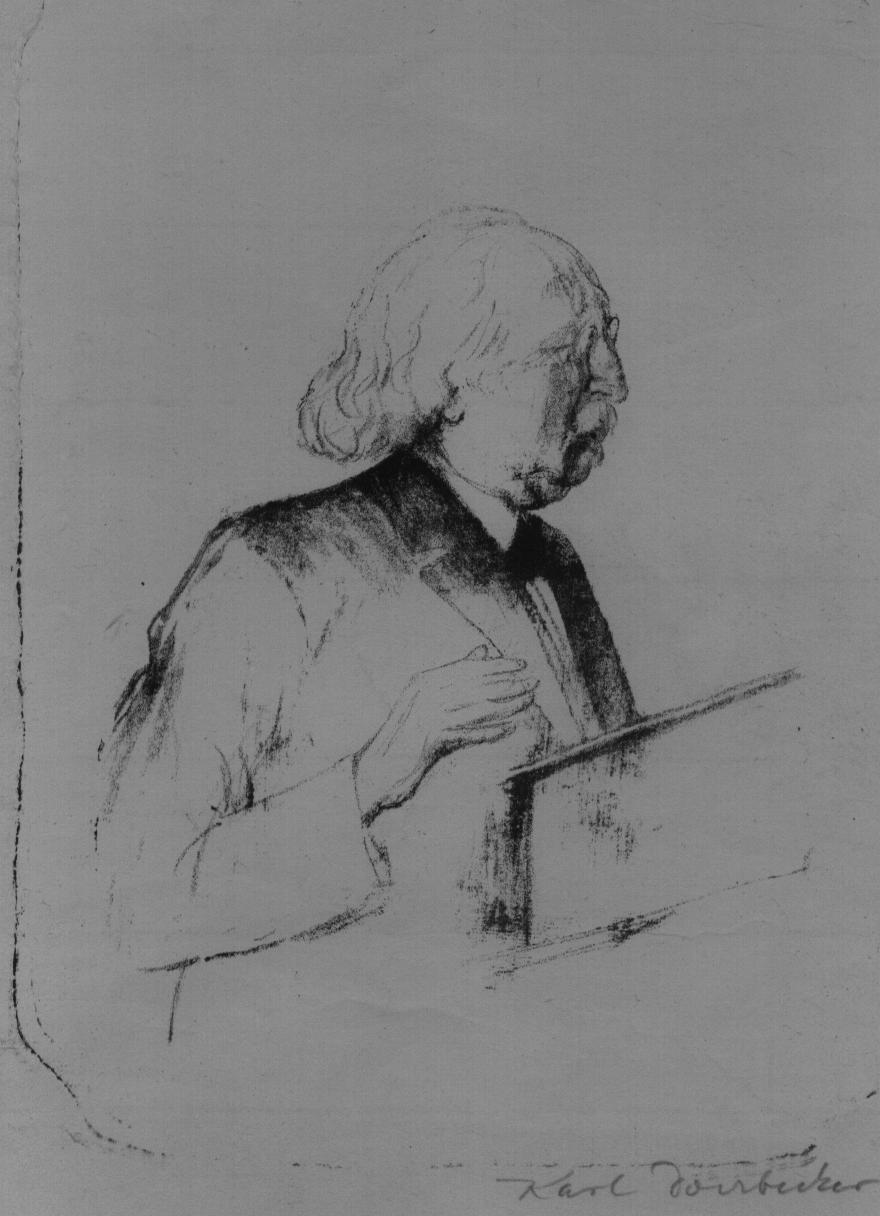Wurm, der ich bin, von Leidenschaften zerfressen, der Selbstsucht zum Köder hingeworfen, soll ich dennoch den Menschen lieben. Wenn ich dies kann, und sofern ich dies kann, kann ich auch Gott lieben.
Origine: The Concept of Religion in the System of Philosophy (1915), p. 82 http://books.google.com/books?id=rZ9RAAAAMAAJ&pg=PA82
Hermann Cohen: Frasi in inglese
Origine: Reason and Hope: Selections from the Jewish Writings of Hermann Cohen (1971), p. 5
Origine: Reason and Hope: Selections from the Jewish Writings of Hermann Cohen (1971), p. 124
Wenn ich Gott liebe, so liebe ich nicht pantheistisch das Universum, nicht die Tiere, die Bäume und die Kräuter, als meine Mitgeschöpfe, sondern aber ich liebe in Gott einseitig den Vater der Menschen, und diese höhere Bedeutung und diese soziale Prägnanz hat nunmehr der religiöse Terminus von Gott alsVater: er ist nicht sowohl der Schöpfer und Urheber, sondern vielmehr der Schutz und Beistand der Armen.
Origine: The Concept of Religion in the System of Philosophy (1915), p. 81 http://books.google.com/books?id=rZ9RAAAAMAAJ&pg=PA81
An dem Armen geht mir der Mensch auf. Daher kann ich den Menschen nicht denken ohne das Mitleid mit ihm, ohne die Liebe zu ihm. Nicht das Universum, aber das sittliche Universum, das soziale Dasein der Menschen muß ich denken und lieben, wenn mein Denken Gottes: Liebe heißen darf.
Origine: The Concept of Religion in the System of Philosophy (1915), p. 81 http://books.google.com/books?id=rZ9RAAAAMAAJ&pg=PA81
Origine: Reason and Hope: Selections from the Jewish Writings of Hermann Cohen (1971), p. 122
Origine: Reason and Hope: Selections from the Jewish Writings of Hermann Cohen (1971), p. 124
Origine: Reason and Hope: Selections from the Jewish Writings of Hermann Cohen (1971), p. 52
Origine: Reason and Hope: Selections from the Jewish Writings of Hermann Cohen (1971), p. 118
Unter dieser Beleuchtung entsteht mir der Gott, der der Beistand des Armen ist und sein Rächer in der Weltgeschichte. Diesen Rächer der Armen liebe ich.
Origine: The Concept of Religion in the System of Philosophy (1915), p. 81 http://books.google.com/books?id=rZ9RAAAAMAAJ&pg=PA81
